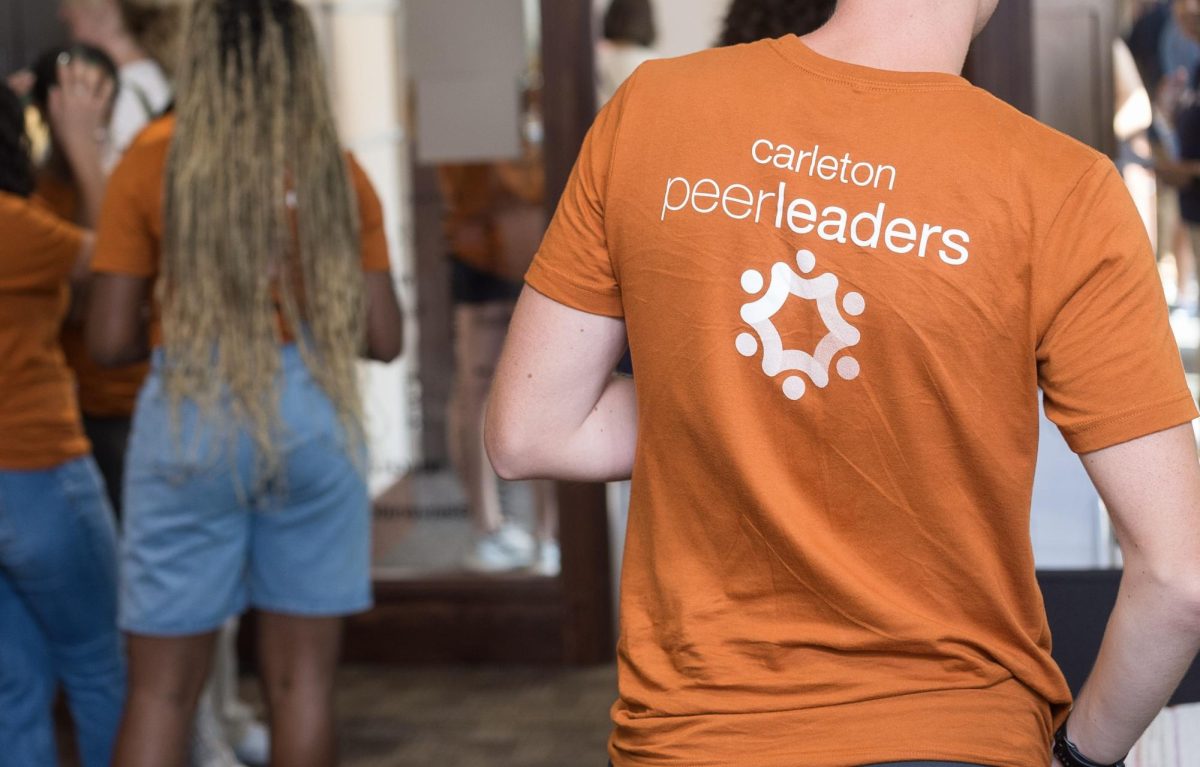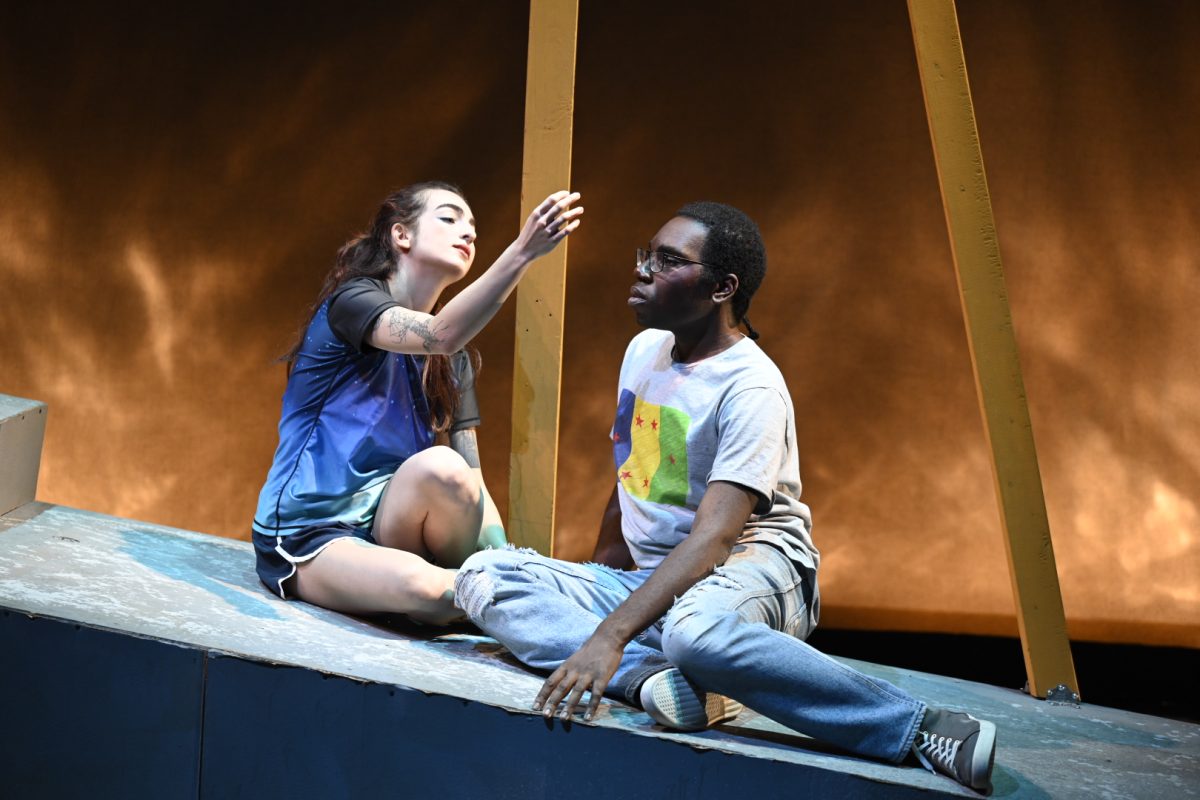Chemistry major and Spanish minor Anna Conley ’20 recently received the prestigious Watson Fellowship, a national program that funds recipients for a year of international research. For Conley, the Watson will fund a year-long trip around the world to explore her passion: mycology (the study of fungi). As part of her fellowship, she will travel to China, Australia, Chile, the Netherlands, and beyond, exploring fungi and their various cultural contexts. Taylor Yeracaris ’20 sat down (over Zoom!) with Conley to discuss her plans for the fellowship and her passion for all things fungus.
Taylor Yeracaris: What is your fellowship about?
Anna Conley: My fellowship, really broadly, is about mushrooms, or about fungi over all, since mushrooms are only a small part of them. But really it’s about a lot more than just mushrooms. It’s about the people and groups of people who use them. Throughout my life mushrooms and fungi have been something that have brought me together with people, like my family and some very unexpected friends, so I want to learn about the role that fungi play in connecting people to others around them, and also to the natural world. That could look like a lot of different things, from just a hobby—more like I’ve experienced it—to their livelihood or something that they research, and everything in between.
TY: Where will you go on your fellowship?
AC: That’s always open to change. Right now I’m planning to spend some time in the Netherlands, because they have played a huge role in mushroom cultivation. Even though they’re not known for loving to collect mushrooms, they’re the number one exporter of mushrooms in the world, and they’ve developed a lot of the techniques for growing mushrooms. Then I want to spend a little time in the Czech Republic, which is known for its obsession with mushroom hunting—it’s almost like a competitive sport there. Then—and this is still in the works—but I want to travel to some of the regions of Russia and Siberia, where the people, especially the Indigenous peoples, have used fungi for a lot of religious rituals as well as for food.
AC: Then I want to spend some time in different parts of China, where fungi are revered and have been traditionally used for a long time for food, medicine, and a lot of other things. And then to Australia. Because it’s a very different climate—you wouldn’t really expect fungi in the desert, but there are actually desert truffles that grow there, and they’re a big part of the economy. Originally I found something about the Western Sahara, and how one of the things that has helped the refugee peoples there survive economically is desert truffles, but unfortunately it’s not safe to travel to the Western Sahara.
AC: And then also to Chile, where I have talked to some organizations who work with Indigenous groups there to identify previously unknown species of fungi in the rainforest and mountains there, as well as their traditional uses. I think that’s all the places I want to go, but it’s very possible that I won’t make it to every single one of them.
TY: How did you find these places and decide where to go?
AC: Well, when it comes to fungi, I really could have found something almost anywhere, because they’re important in pretty much every part of the world in different ways. I wanted to pick a variety of places, where they’re important for different reasons, and also places with very different ecosystems—like from the South American rainforest to Siberia to Australia. And then from commercial uses to research—I haven’t mentioned it yet, but I have also been in contact with a lot of researchers who research new ways that fungi could be used to produce food or to break down trash and things like that. So from cultivation to research to food and medicine and religious use, I tried to include some of all of that. The specifics from there were really just a little bit of luck—who I happened to know or meet through different contacts or some books that I’ve read.
TY: Why are you so passionate about mycology?
AC: I think there are a lot of reasons for that. I’ve always loved spending time in the outdoors and learning more about the things I see around me, and I think I’ve always had this curiosity about what happens in the ecosystem that we can’t see. For example, underground—that’s most of where fungi do their thing, because they are actually underneath the entire forest. But when I first started getting into mushrooms I really didn’t know any of that. It started out with me as a child with my parents, when they’d take me out to hunt for Morel mushrooms. I absolutely loved it, because I loved searching for and finding them in the forest. They were like little treasures, and I was so proud when I always found more than my family. I would slowly learn the different types of trees they were associated with.
AC: As I got older I started reading more about the biology of fungi, about all the different species, and about the roles they play interacting with the trees in the forest. Fungi are literally everywhere we go, and play a huge role in our daily lives and the lives of the ecosystems we live in. But we hardly know anything about them, and most of the species are not identified. It’s a complete kingdom of life that we don’t really understand. I’m intrigued by that, and intrigued by all the interesting people I’ve met who care about fungi, too.
TY: What sorts of people have you met around fungi? Is there a “fungi type of person?”
AC: I will say most of the people that you’ll meet in the mushroom community, especially in the United States, are at least 50. It’s an older demographic a lot of the time. It’s people who have come into it from different random ways, and they all have completely different lifestyles and jobs, but they will get together in groups to go foraging. They know and connect with each other through their love of searching for mushrooms, and I thought that was cool how that can break down barriers. The biggest example of that I’ve experienced was in Spain. I went to a mycology society conference in Northern Spain—it was kind of a last-minute whim, when I saw it on the Internet, that I decided to go—but I met a bunch of people there.
AC: There were one or two who were close to my age, but most of them were probably 30 to 50. They were from all different parts of Spain, and had completely different political views, but they’d all been friends for around 14 years, because every year they would come to this conference and search for mushrooms together. They took me with them to search through the forest in France and have a picnic. Then we’d go out and get food and do karaoke. I think they liked that I was so excited about something as unique as fungi, and they took me in. I thought that was a really cool experience. It was all in Spanish, and they called me “their favorite American girl.”
TY: What are you hoping to learn or experience during this fellowship?
AC: I think the main thing that I’m hoping to learn or gain is to build relationships with people who have different perspectives on fungi and the natural world than I do. I’ve grown up collecting and photographing and learning about fungi, and they’re really important to me, but they’re important to a lot of other people in different ways, and I don’t think I can understand that without meeting them. Especially because in the United States people aren’t really in love with fungi, and in fact more the opposite—they think they’re scary or weird or gross—I think learning from people who have a perspective that’s different from that, and who might connect with the natural world in a different way, is the main thing that I want to do.
AC: I want to learn what things I might be able to take away from those perspectives, or the ways that I might be able to use fungi to help people better use and take care of their natural resources and the ecosystems around them. That could be anything from learning how someone might view their ecosystem differently because they depend on it for the fungi they collect for a living, to talking to researchers who are actually doing projects where fungi might be able to help solve some of our environmental problem. That’s one of my ultimate goals—learning from different people’s perspectives on the natural word and sharing these perspectives when I come back. Really I just want to find a way to use my love of both fungi and the natural world to help better our relationship with the natural world.
TY: What is your favorite fungi fact?
AC: I think something that really impressed me when I was younger was reading books and finding facts about the abilities of fungi that basically made me think that I could invent my own superhero that’s based on a fungus. A mushroom can produce enough force to break through cement— you see them grow through cement and rock. The amount of pressure they produce is huge. And then there are fungi that use temperature gradients and moisture to basically create their own wind, so they’ll create a convection current that will spread their spores. And then there’s the cordyceps fungus, which basically takes over the brain of an ant or caterpillar, makes it climb to the top of a tree, kills it, then grows and spreads its spores from the top of the tree. It’s crazy. And another fact is that they’re delicious! Some of them.














